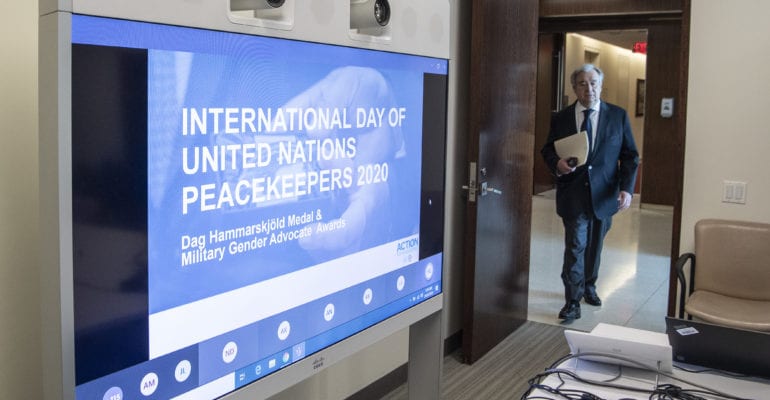“It is almost twenty years since the UN Security Council unanimously adopted the Resolution 1325. This resolution acknowledged the disproportionate impact of armed conflict on women and girls. It also called for increased participation of women at all levels of decision-making during the peace process, stating: ‘The resolution reaffirms the important role of women in the prevention and resolution of conflicts, peace negotiations, peace-building, peacekeeping, humanitarian response and in post-conflict reconstruction and stresses the importance of their equal participation and full involvement in all efforts for the maintenance and promotion of peace and security’.
Unitl this point, it was as if not only war, but also peacemaking were men’s worlds, despite the established fact that women bear heavily the consequences of both. The effective participation of women in peace processes holds irrefutable, instrumental value – for it brings to the table women’s inherent experiences, perspectives and interests.
For Soroptimists, it is heartening to see that this year the work of women on the front lines of the conflict zones has been duly acknowledged. More importantly that the awardees have been relentlessly advocating and training warring factions to abide by gender sensitive actions.

Image: UN Photo – UN Photo/Loey Felipe. The Dag Hammarskjold Medal and Military Gender Advocate of the Year award ceremonies (virtual). In observance of the International Day of United Nations Peacekeepers with 2020 Theme: Women in Peacekeeping: A Key to Peace. Major Suman Gawani – United Nations Military Gender Advocate of the Year Award.
UN Peacekeeping Day on 29 May brought laurels for Major Suman Gawani, an Indian Army officer and a Military Observer formerly deployed with the United Nations Mission in South Sudan (UNMISS). She received the 2019 United Nations Military Gender Advocate of the Year Award along with Brazilian Navy Officer Commander Carla Monteiro de Castro Araujo, in an online ceremony. The latter serves as the military Gender and Protection Advisor in the UN Mission in the Central African Republic (MINUSCA). Both Officers have conducted training on gender and protection and mentored UN Military Observers on conflict-related sexual violence. The Officers also sought to increase the number of gender-responsive patrols engaging with local communities.
Commending the two women peacekeepers, UN chief António Guterres described them as powerful role models: ‘Through their work, they have brought new perspectives and have helped to build trust and confidence among the communities we serve’, adding, ‘through their commitment and innovative approaches, they embrace a standard of excellence that is an inspiration to all blue helmets everywhere. As we confront today’s challenges, their work has never been more important or relevant’.
The presence of women peacemakers in conflict areas often mitigates the violence and helps conservative communities to be more forthcoming. Often, they become inspirational role models for the women and girls in those very communities. The likely-hood of sustainable peace, reconciliation and reconstruction post settlement is higher.
Women’s representation in the peace process and in the UN Peacekeeping Forces was minimal, but has grown with the support of Members States and the push of civil society organisations for a full implementation of Security Council resolution 1325″.
by Nisha Ghosh, Soroptimist International of Great Britain & Ireland – Assistant Programme Director.
Further information at: https://news.un.org/en/story/2020/05/1064872
Lead Image: UN Photo/Eskinder Debebe

